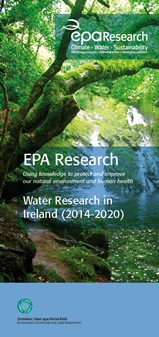
EPA Research - using knowledge to protect and improve our natural environment and human health, November 2015
Year: 2015
A summary of the EPA Water Research Programme, key achievements, water research publications and water research projects funded 2014-2020.
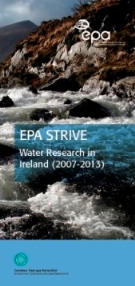
Author: Lisa Sheils, EPA, updated in 2015 by Abigail Murphy and Alice Wemaere, EPA, September 2015
Year: 2015
List of Water Projects funded by EPA Research Programme between 2007 and 2013.
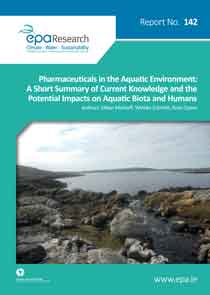
Year: 2015
This report aims to collate the knowledge base by documenting what is currently known and understood about pharmaceuticals in the aquatic environment and their potential impacts on aquatic biota and ultimately humans.
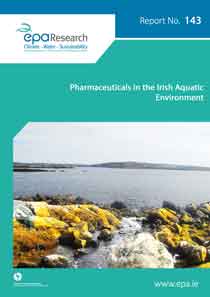
Year: 2015
The overall aim of this project was to combine chemical and biological analyses in an integrated assessment of the extent and the effects of pharmaceutical pollution in the Irish aquatic environment, with the ultimate aim of developing a simple bioassay for the fast, reliable identification and toxicological assessment of pharmaceuticals in environmental samples.
Year: 2015
The aim of this project was to develop a tool box, Microbial Source Tracking (MST), to enable water quality managers to identify the biological and geographical sources of faecal pollution of water bodies.
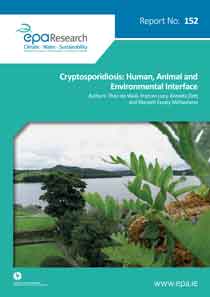
Year: 2015
The aim of this study was to investigate the monthly prevalence of Cryptosporidium in farm animals during March–June over two years in two catchments – the Liffey and Lough Gill – in the east and west of Ireland.
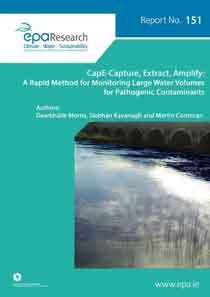
Year: 2015
This 2-year research and development project focused on validating a rapid and convenient method for screening large volumes of water for the presence of VTEC.
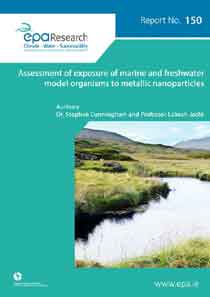
Year: 2015
With the advent of industrial utilisation of ENMs, it is now of the utmost importance that exposure risk scenarios in relation to increasing and unnatural NPs, where their function and interaction with their environment is unpredictable, are monitored, assessed and, if required, that regulatory guidelines are implemented early in their application.
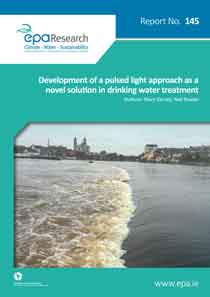
Year: 2015
The aim of this study was to determine if a novel PUV system provides a suitable means of disinfecting water, with particular emphasis on parasite species.
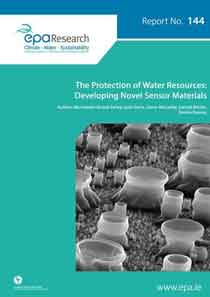
Year: 2015
The research described herein sets out to develop polymer-coated, membrane-based technologies that could be used to detect organic contaminants, nitrates or heavy metals, namely chromium and copper, in aqueous systems. The membranes were modified so as to investigate their potential in the required sensing capacity.
[1].jpg)
Year: 2015
The prevalence and persistence of Cryptosporidium – particularly with respect to drinking water supplies – is one of the key environment and health issues for the Environmental Protection Agency (EPA).
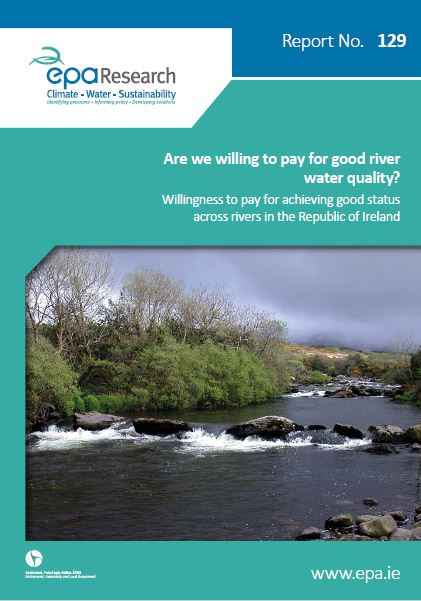
Willingness to pay for achieving good status across rivers in the Republic of Ireland, , September 2014
Year: 2014
One of the main objectives of this research was to examine public attitudes towards water quality related issues and the importance that the general public places on these compared with other potential environment issues.
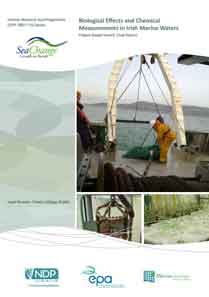
EPA and Marine Institute and Trinity College Report, September 2014
Year: 2014
The overall aim was to increase Ireland’s capacity for the generation of integrated monitoring of biological effects and chemical measurement data and for the completion of a pilot scale assessment of the quality of the Irish marine environment at a number of selected locations.
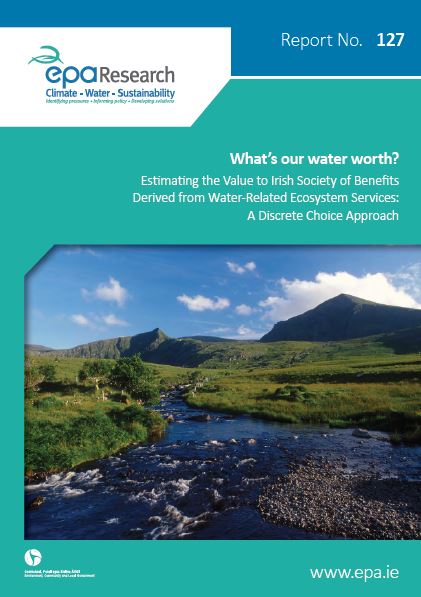
Research Report 127: Estimating the Value to Irish Society of Benefits Derived from Water-Related Ecosystem Services: A Discrete Choice Approach, August 2014
Year: 2014
Research Report 127 Dr Stephen Hynes NUIG
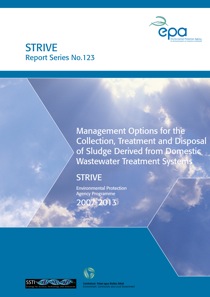
STRIVE 123 - Michael F. Joyce and Dr Kathryn Carney, March 2014
Year: 2014
This report looks at options for managing sludge from septic tanks
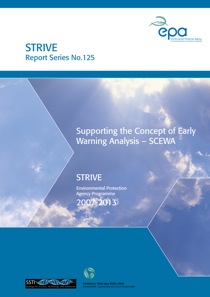
Dr Ioannis M. Dokas, March 2014
Year: 2014
This project looked at developing early warnings systems for safety issues in drinking water plants
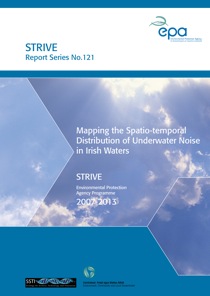
Gerry Sutton, Mark Jessopp, Thomas Folegot and Dominique Clorenec, February 2014
Year: 2014
This project looks at mapping the effects of noise generated by humans on the marine environment

Gerry Sutton, Mark Jessopp, Thomas Folegot and Dominique Clorenec, February 2014
Year: 2014
This project looks at mapping the effects of noise generated by humans on the marine environment
STRIVE 109 - Bill Dore, John Flannery, Sinead Keaveney, Paulina Rajko-Neneow, February 2014
Year: 2014
This project looks at the effect of waste waster discharges containing Norovirus on shelfish
2 page summary of findings for STRIVE 120 - Assessment and Monitoring of Ocean Noise in Irish Waters, January 2014
Year: 2014
Sources of anthropogenic (man-made) ocean noise include noise emitted from activities such as shipping, seismic surveying, geophysical surveying, construction, oil drilling and production, dredging, sonar systems, acoustic deterrents and most recently from the construction and operation of renewable energy platforms.